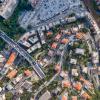20 May 2022
In recent years, crowdsourcing, which involves recruiting members of the public to help collect data, has been tremendously helpful to provide researchers with unique and rich datasets, while also engaging the public in the process of scientific discovery. In a new study, an international team of researchers explored how crowdsourcing projects can make the most effective use of volunteer contributions.


